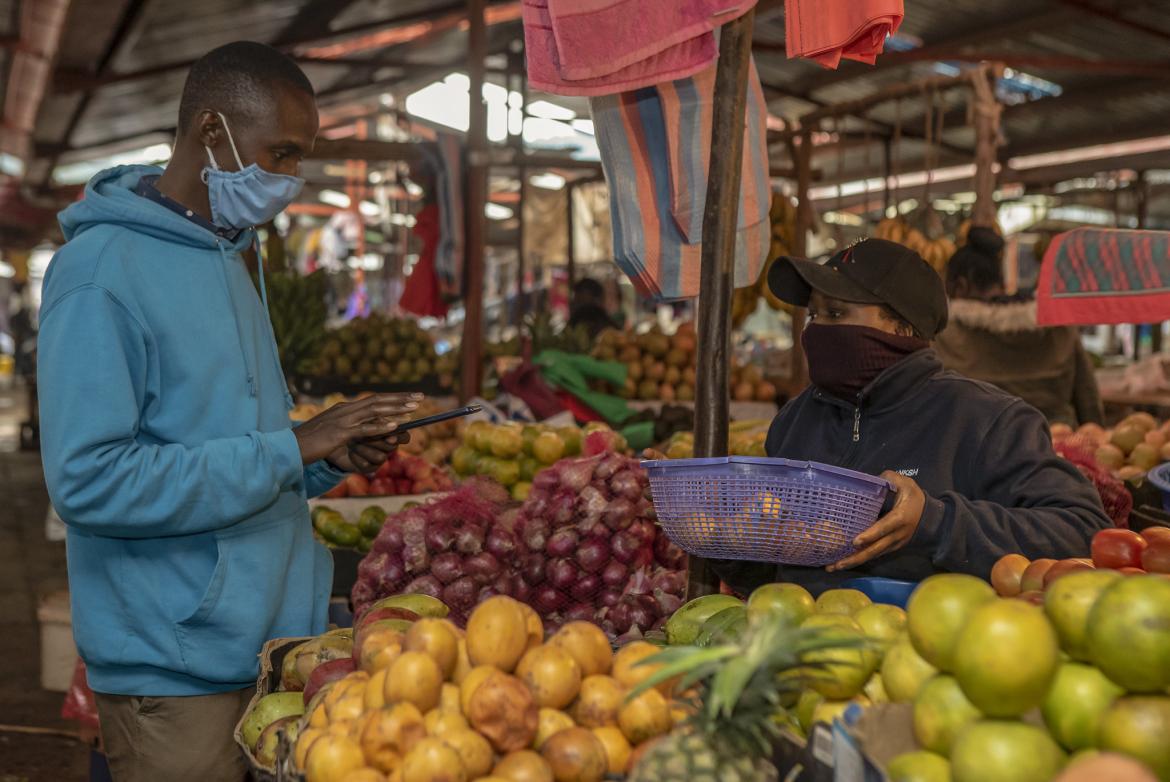Empowering Youth in Africa to Build Next Gen Agriculture Systems

One billion out of the world’s 1.2 billion youth (age 15-24) live in developing countries. Africa will represent the youngest region in the 21st century at the time when the western population continues to age and by 2050, one-third of global youth will be in Sub-Saharan Africa. IFAD predicts that Africa’s share of the global rural youth population is expected to rise from 20% to 37% in the next 30 years, and agriculture remains the main source of employment for them in most low and middle-income countries. Of the 25 million young people entering the labor market in the region every year, more than 14 million are from the agrarian communities; the youth bulge will reach 600 million by 2100 with most of them living in rural areas as estimated by a GIZ paper. Furthermore, by 2050, only 15-20 million will constitute well-educated youth, which requires job creation and skill enhancement to prepare youth for the digital economy and future.
The cultural, economic, and political context of a country has a significant impact on the livelihood opportunities of rural youth. As reported by FAO, currently 70% of youth in Sub-Saharan Africa are considered working poor who take a role as subsistence farmers, home-based microentrepreneurs or unskilled workers. COVID-19 has presented additional difficulties for youth in the agriculture value chains, who already suffer from limited access to resources, knowledge and technology along with insufficient participation in decision-making processes. However, the FAO survey also shows that young agripreneurs are innovating and adapting in the face of multifaceted challenges from the pandemic by moving to online marketing, forging new partnerships, exploring alternative inputs and adding value to primary products (e.g. processing) among others.
Young people are typically more likely to take on entrepreneurial roles, innovate and adapt new technology – skills that will be critical to transform agriculture sector and thrive in the uncertain glocal (global and local) environment. As ILO expects, the rapid pace of technological change will likely advance mechanization in agriculture and automatization of clerical, communications, marketing and service-sector tasks especially in the context of major innovations in digital services, bringing unprecedented changes to the rural economy. Since a large number of African rural youth are predicted to enter agriculture sector in the coming decades, it is imperative to invest in future-fit agriculture, leveraging sustainable agriculture practices and ICT, as well as create enabling environment via governance and policies to improve the prospects of the youth.
Efforts are undertaken by regional institutions and international organizations towards youth-inclusive agricultural and rural development. Under the inclusive agricultural growth and transformation of the African Union Malabo Declaration, African leaders have made a commitment to create jobs for at least 30% of the youth in agricultural value chains by 2025. The Agenda 2063 approved by the continent’s leaders also emphasizes realization of youth dividend through investing in the talent pipeline and mainstreaming youth in all development goals. In terms of agriculture, it would be of great importance to invest in infrastructures and technology in the rural areas to make the places attractive for youth to live and work in. If countries in Sub-Saharan Africa could adopt human capital investment strategies and policies that expand opportunities for young people, their combined demographic dividends could be enormous: at least $500 billion a year, equal to about one third of the region’s current GDP, for as many as 30 years.
To support adequate and gainful employment for the increasing young population in Africa, WBG’s targeted interventions include but not limited to increasing investment in high quality education to better equip youth with new technology, business and digital skills; attracting/retaining youth and entrepreneurs to agriculture sector by modernizing agriculture through technology with a gender lens; providing financial resources and training to inspire and enable creative capacity of youth in all sectors. For more youth-specific programs, please refer to S4YE (Solutions for Youth Employment) - a global program housed in the Jobs Group of the Social Protection & Jobs Global Practice of the World Bank Group.
To facilitate rural entrepreneurship and technological innovation, equally important is access to finance and protection from risks (i.e. fail-safe). As climate change is predicted to affect the agriculture sector of Africa even more in the future when more youth are predicted to be engaged in agriculture, climate risk solutions supported by GIIF will contribute to improving financial inclusion and increasing the productivity of the entire value chain. With the development of the insurance industry in Africa, more value-added services are being offered along with the risk protection increasingly enabled by digital platforms ranging from dissimilating agri knowledge and bundling with productive assets to embedding insurance as part of larger agriculture risk management. As the key initial adopters of digital technologies, rural youth may be well-placed to benefit from proliferation of mobile phone and innovations of the industry built on past experiences. There is active hope that, with coordinated support from wider stakeholders, young people of Africa today can increase their capabilities and agency to construct next generation agriculture systems that are more sustainable, resilient and prosperous.
For related discussion in Kenya’s context, please refer to a panel discussion among George Kuria (CEO of ACRE Africa), Mary Njeri Thiong (FAO Kenya), Samwel Ogola (Warehouse Receipt System Council) and Harry Kimutai (Ministry of Agriculture) at FarmKenya Connect live on KTN News and KT Farmers TV here.
Photo: Market Place in Kenya. Photo Credit: World Bank / Sambrian Mbaabu
